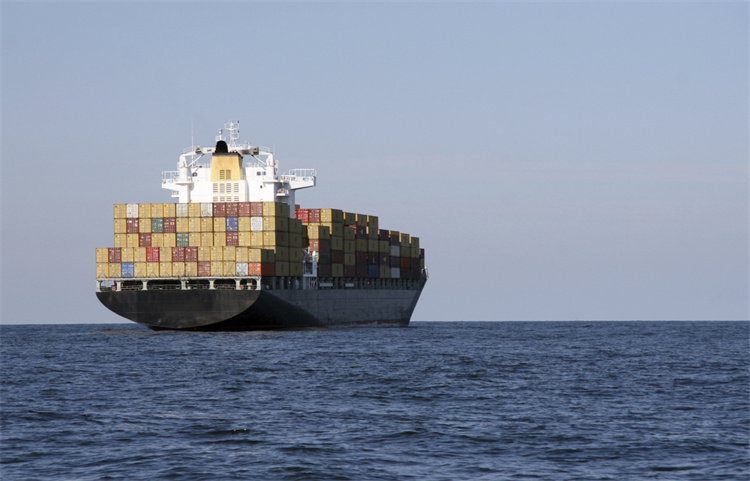Enhancing Global Logistics with Effective Risk Strategies

Global logistics plays a pivotal role in today's economy, driving the seamless movement of goods across borders. The logistics industry, valued at approximately USD 8.96 trillion in 2023, is projected to reach around USD 21.91 trillion by 2033. This growth underscores its significance. However, the sector faces numerous risks, including operational disruptions and financial uncertainties. Effective logistics risk management becomes essential to mitigate these challenges. By implementing robust strategies, companies can ensure stability and reliability in their supply chain operations, safeguarding against potential disruptions and enhancing overall efficiency.
Understanding Global Logistics
Definition and Scope
Global logistics encompasses the comprehensive management of the flow of goods, services, and information across international borders. It involves a network of activities that ensure products reach their destinations efficiently and effectively.
Key Components of Global Logistics
Transportation: This includes various modes such as air, sea, land, and rail. Each mode plays a crucial role in moving goods from one location to another.
Warehousing: Facilities that store goods temporarily before they reach their final destination. Efficient warehousing solutions, like JUSDA's cloud warehousing, enhance inventory management.
Inventory Management: The process of overseeing and controlling the ordering, storage, and use of components that a company uses in the production of the items it sells.
Supply Chain Coordination: Ensures all parts of the supply chain work together seamlessly. JUSDA's JusLink intelligent supply chain exemplifies this by integrating IoT, cloud computing, and big data.
Importance in International Trade
Global logistics serves as the backbone of international trade. It facilitates the movement of goods across borders, enabling businesses to expand their markets and access resources worldwide. Third-party logistics providers, such as JUSDA, contribute significantly by offering tailored solutions that optimize supply chains and reduce operational costs. This optimization supports economic growth and fosters development in various regions.
Current Trends and Challenges
Technological Advancements
The logistics industry is experiencing rapid technological advancements. Innovations such as IoT, cloud computing, and big data analytics are transforming how logistics operations are managed. These technologies enhance supply chain visibility, improve efficiency, and enable real-time decision-making. Companies like JUSDA leverage these advancements to provide intelligent supply chain solutions that meet the evolving needs of their clients.
Regulatory and Compliance Issues
Navigating regulatory and compliance issues remains a significant challenge in global logistics. Different countries have varying regulations regarding the import and export of goods. Logistics providers must stay informed about these regulations to ensure compliance and avoid potential disruptions. Effective risk management strategies, including continuous monitoring and adapting to changing conditions, are essential for overcoming these challenges and maintaining smooth logistics operations.
Identifying Risks in Global Logistics

Types of Risks
Operational Risks
Operational risks in global logistics arise from inefficiencies and disruptions in the supply chain. These risks can stem from various factors, including logistical inefficiencies that limit market growth and job opportunities. Inefficient operations contribute to environmental pollution and hinder the timely delivery of goods. Companies like JUSDA address these challenges by implementing advanced tracking systems and security measures to minimize cargo loss and enhance operational efficiency.
Financial Risks
Financial risks in logistics often result from economic uncertainties and demand fluctuations. These risks impact logistics costs and can lead to inventory issues. For instance, sudden changes in demand may cause overstocking or stockouts, affecting a company's financial stability. Effective risk management strategies, such as accurate demand forecasting and cost control measures, are essential to mitigate these financial risks and ensure profitability.
Environmental Risks
Environmental risks pose significant challenges to global logistics operations. Factors such as climate change and unexpected weather events can cause substantial damage to infrastructure and disrupt supply chains. Companies must adopt sustainable practices and invest in resilient infrastructure to mitigate these risks. JUSDA, for example, leverages technology to enhance supply chain visibility and adaptability, ensuring operations remain unaffected by environmental disruptions.
Impact of Risks on Logistics Operations
Disruptions in Supply Chain
Supply chain disruptions can occur due to various reasons, including geopolitical unrest and regulatory changes. These disruptions affect shipping routes, manufacturing processes, and supplier locations. Geopolitical situations highlight the volatility in these areas, making it crucial for logistics providers to stay informed and adaptable. Continuous monitoring and strategic planning help companies navigate these challenges and maintain smooth operations.
Increased Costs and Delays
Risks in global logistics often lead to increased costs and delays. Economic uncertainties and demand risks contribute to rising logistics costs, while environmental factors and operational inefficiencies cause delays in delivery schedules. Companies must implement effective risk management strategies to minimize these impacts. By investing in technology-driven solutions and optimizing supply chain processes, logistics providers can reduce costs and improve delivery timelines, ensuring customer satisfaction and business continuity.
Logistics Risk Management with JUSDA
Risk Assessment and Analysis in Logistics Risk Management
JUSDA excels in logistics risk management by conducting thorough risk assessments and analyses. The company identifies potential risks by examining every aspect of the supply chain. This proactive approach allows JUSDA to pinpoint vulnerabilities that could disrupt operations. By understanding these risks, JUSDA develops strategies to address them effectively.
Identifying Potential Risks
JUSDA employs advanced technologies to identify potential risks in logistics operations. The use of AI and machine learning enables the company to analyze vast amounts of data, providing insights into possible disruptions. This technology-driven approach ensures that JUSDA remains ahead of potential challenges, safeguarding the supply chain from unforeseen events.
Evaluating Risk Impact and Likelihood
Once potential risks are identified, JUSDA evaluates their impact and likelihood. This evaluation involves assessing how each risk could affect logistics operations and determining the probability of occurrence. By understanding the severity and frequency of risks, JUSDA prioritizes them and allocates resources to mitigate the most critical threats.
Mitigation Strategies in Logistics Risk Management
JUSDA implements robust mitigation strategies to manage risks effectively. These strategies focus on leveraging technology and building resilient supply chains to ensure continuity and reliability.
Implementing Technology Solutions
JUSDA integrates cutting-edge technology solutions into its logistics risk management framework. The JusLink Smart Supply Chain Management Platform provides real-time tracking and analytics, offering unparalleled visibility and control over supply chain operations. This platform enables JUSDA to address potential issues proactively, minimizing disruptions and enhancing operational efficiency.
Building Resilient Supply Chains
Building resilient supply chains is a cornerstone of JUSDA's logistics risk management strategy. The company fortifies its supply chain by identifying potential bottlenecks and vulnerabilities. By developing contingency plans and alternative strategies, JUSDA ensures that operations continue smoothly, even during disruptions. This resilience fosters adaptability and continuous improvement within the supply chain.
Monitoring and Review
Continuous monitoring and review are essential components of JUSDA's logistics risk management approach. These processes ensure that strategies remain effective and adaptable to changing conditions.
Continuous Risk Monitoring
JUSDA employs continuous risk monitoring to maintain a vigilant watch over supply chain operations. Real-time data and analytics provide insights into emerging risks, allowing JUSDA to respond swiftly. This proactive monitoring ensures that the supply chain remains robust and adaptable, minimizing the impact of unexpected events.
Adapting Strategies to Changing Conditions
JUSDA adapts its logistics risk management strategies to evolving market conditions. The company continuously reviews and updates its risk management practices to align with industry trends and client needs. This adaptability ensures that JUSDA remains at the forefront of logistics innovation, delivering exceptional value to its clients.

JUSDA Solutions
To provide you with professional solutions and quotations.
Risk management in logistics plays a pivotal role in ensuring the safe and timely delivery of goods. By identifying, analyzing, and mitigating risks, logistics operations can maintain cargo integrity and worker safety. The future of global logistics hinges on effective risk strategies that enhance supply chain resilience. As the sector faces challenges ranging from natural disasters to cyber threats, proactive risk management becomes essential. Logistics professionals must prioritize these strategies to safeguard operations and ensure the uninterrupted flow of goods. Embracing these practices will position companies for success in an increasingly complex global market.
See Also
Unraveling the Effects: Trends in Logistics Risk
Dominating Supply Chain Risk Control: Pro Tips
Navigating the Route: Enhancing Supply Chain Risk Management
Opening the Way: Strategies for Successful Supply Chain Risk Mitigation
